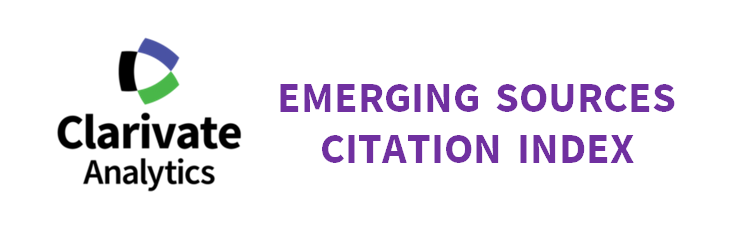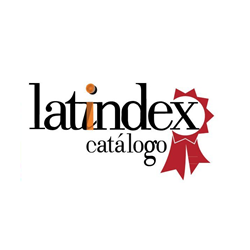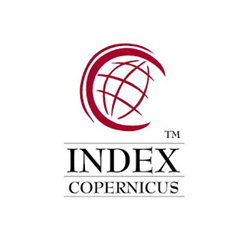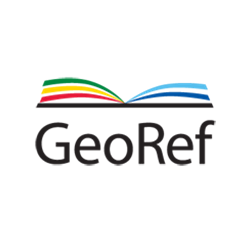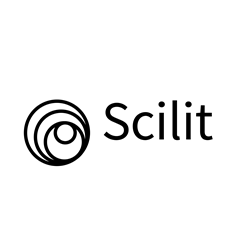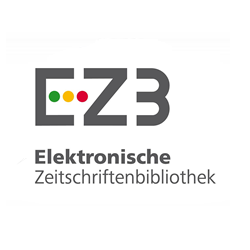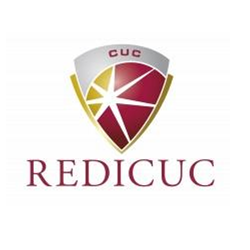Political risk: Interpreting the International context
DOI:
https://doi.org/10.17981/ingecuc.19.2.2023.03Keywords:
international investment, political risk, international political economy, SMAAAbstract
Introduction— Since the beginning of the economic opening processes in the 1990s, Investments Have Increased (FDI) worldwide. However, not all countries are proposed as ideal destinations for recipients of FDI, they must have an attractive economic, political, and social landscape, which is studied in this work.
Objective— This research has the objective of studying the influence that political risk may have on the decision-making on the subject of FDI by entrepreneurs, in particular, Colombians
Methodology— A series of decision criteria is proposed from conceptual areas where the inversion problem has been analyzed. A scale of value has been generated for each criterion, which can be studied as means of stochastic multicriteria acceptability analysis.
Results— The analysis results point to the United States as the best destination for Colombian investment, followed by Brazil, the United Kingdom, and Chile, while Panama, Spain, and Mexico are not favored by any weighting.
Conclusions— This work might be helpful in decision-making processes intended to reduce the uncertainty that is proper of the foreign investment environment.
Downloads
References
Z. Kudrna & D.Gabor, “The Return of Political Risk: Foreign-Owned Banks in Emerging Europe,” Eur Asia Stud, vol. 65, no. 3, pp. 548–566, Apr. 2013. https://doi.org/10.1080/09668136.2013.779458
P. Sethi & K. Luther, “Political Risk Analysis and Direct Foreign Investment: Some Problems of Definition and Measurement,” Calif Manage Rev, vol. 28, no. 2, pp. 57–68, Jan. 1986. https://doi.org/10.2307/41165184
S. Kobrin, “Political Risk: A Review and Reconsideration,” J Int Bus Stud, vol. 10, no. 1, pp. 67–80, Mar. 1979. https://doi.org/10.1057/palgrave.jibs.8490631
D. Villar, S. Dreyhaupt, P. Economou, C. Lambert, G. Verheyen & E. Salinas, World investment and political risk. WAS D.C., DC, USA: MIGA, 2011. https://doi.org/10.1596/978-0-8213-8478-7
M. Petrova & R. Bates, “Evolution of Risk and Political Regimes,” Econ Polit, vol. 24, no. 2, pp. 200–225, Jun. 2012. https://doi.org/10.1111/j.1468-0343.2012.0398.x
K. Hayakawa, F. Kimura & H. Lee, “How Does Country Risk Matter for Foreign Direct Investment,” Dev. Econ, vol. 51, no. 1, pp. 60–78, Feb. 2013. https://doi.org/10.1111/deve.12002
E. Giambona, J. Graham & C. Harvey, “The management of political risk,” J Int Bus Stud, vol. 48, no. 4, pp. 523–533, Feb. 2017. https://doi.org/10.1057/s41267-016-0058-4
T. Gormley & D. Matsa, “Playing It Safe? Managerial Preferences, Risk, and Agency Conflicts,” J Financ Econ (JFE), Forthcom, pp. 1–68, Jul. 2014. http://dx.doi.org/10.2139/ssrn.2465632
Y. Gao, “Managing Political Risk in Cross – National Investment: A Stakeholder View,” Singap Manag Rev, vol. 31, no. 1, pp. 99–114, Mar. 2009. Available: https://www.proquest.com/docview/226850655
T. Huang, F. Wu, J. Yu & B. Zang, “International Political Risk and Government Bond Pricing,” J Bank Financ, vol. 55, pp. 393–405, Oct. 2015. http://dx.doi.org/10.2139/ssrn.2312188
P. Méon & K. Sekkat, “FDI Waves, Waves of Neglect of Political Risk,” World Dev, vol. 40, no. 11, pp. 2194–2205, Nov. 2012. https://doi.org/10.1016/j.worlddev.2012.03.022
S. Ledyaeva, P. Karhunen & R. Kosonen, “Birds of a Feather: Evidence on Commonality of Corruption and Democracy in the Origin and Location of Foreign Investment in Russian Regions,” Eur. J Polit Econ, vol. 32, pp. 1–25, Dec. 2013. https://doi.org/10.1016/j.ejpoleco.2013.06.003
A. Jiménez, I. Luis-Rico & D. Benito-Osorio, “The influence of political risk on the scope of internationalization of regulated companies: Insights from a Spanish sample,” J World Bus, vol. 49, no. 3, pp. 301–311, Jul. 2014. https://doi.org/10.1016/j.jwb.2013.06.001
N. Ashby & M. Ramos, “Foreign direct investment and industry response to organized crime: The Mexican case,” Eur J Polit Econ, vol. 30, pp. 80–91, Jun. 2013. https://doi.org/10.1016/j.ejpoleco.2013.01.006
CNUCYD, “Evolución del sistema internacional de comercio y sus tendencias, desde una perspectiva del desarrollo”, presentado en la Junta de Comercio y Desarrollo, UNCTAD, GIN, CH, 11-22 Sep. 2017. Disponible en https://unctad.org/system/files/official-document/tdb64d5_es.pdf
ONU, Situación y perspectivas de la economía mundial 2015. NYC, NY, USA: UN, 2015. Recuperado de https://www.un.org/en/development/desa/policy/wesp/wesp_archive/2015wesp-es-es.pdf
T. Chang, X. Deng, J. Zuo & J. Yuan, “Political Risks in Central Asian Countries: Factors and Strategies,” J Manag Eng, vol. 34, no. 2, pp. 1–10, Mar. 2018. https://doi.org/10.1061/(ASCE)ME.1943-5479.0000588
L. Dziawgo, “Political risk on Polish capital market,” Ekonom Praw, vol. 19, no. 2, pp. 249–259, Jun. 2020. https://doi.org/10.12775/EiP.2020.017
A. Jimenez & S. Bayraktar, “Political risk in private participation projects: The effects of political discretionality and corruption,” Thunderbird Int Bus Rev, vol. 62, no. 2, pp. 149–160, Jan. 2020. https://doi.org/10.1002/tie.22120
P. Liu, Y. Peng, Y. Shi & J. Yang, “Financial structures, political risk and economic growth,” Eur J Finance, vol. 28, no. 4-5, pp. 356–376, Nov. 2020. https://doi.org/10.1080/1351847X.2021.1879888
CICR, ¿Cuál es la definición de “conflicto armado” según el derecho internacional humanitario? ICRC, Abril 9, 2008. [Online
UNODC, El Marco Jurídico Universal contra el Terrorismo. VI, AUS: UN, 2018. Available from https://www.unodc.org/lpomex/uploads/documents/Publicaciones/Crimen/Module_2_Spanish.pdf
A. Khattab, J. Anchor & E. Davies, “Managerial Perceptions of Political Risk in International Projects,” Int J Proj Manag, vol. 25, no. 7, pp. 734–743, Oct. 2007. https://doi.org/10.1016/j.ijproman.2007.03.006
M. Busse & C. Hefeker, “Political risk, institutions and foreign direct investment,” Eur J Polit Econ, vol. 23, no. 2, pp. 397–415, Jun. 2007. https://doi.org/10.1016/j.ejpoleco.2006.02.003
I. Ronkainen, M. Czinkota & M. Moffett, Negocios Internacionales, 7ª ed., CDMX, MX: Thomson, 2007.
J. Agarwal & D. Feils, “Political Risk and the Internationalization of Firms: An Empirical Study of Canadian-based Export and FDI Firms,” Can J Adm Sci, vol. 24, no. 3, pp. 165–181, Aug. 2007. https://doi.org/10.1002/cjas.26
CIA, The CIA World Factbook 2015. LNG, VA, USA: Skyhorse Pub., 2015.
P. Jadhav, “Determinants of foreign direct investment in BRICS economies: Analysis of economic, institutional and political factor,” Procedia – Soc Behav Sci, vol. 37, pp. 5–14, Dec. 2012. https://doi.org/10.1016/j.sbspro.2012.03.270
K. Schwab, The Global Competitiveness Report 2014–2015. GEN, CH: WEF, 2014. Recuperado de https://www3.weforum.org/docs/WEF_GlobalCompetitivenessReport_2014-15.pdf
T. Miller, A. Kim, J. Roberts, B. Riley & R. Olson, 2015 Index of Economic Freedom, Promoting Economic Opportunity and Prosperity. WAS D.C., DC, USA: Heritage, 2015. Available from https://www.heritage.org/index/pdf/2015/book/index_2015.pdf
BanRep, Flujo de inversión directa de Colombia en el exterior. BO, CO: BR, 2015. Disponible en https://www.banrep.gov.co/es
R. Lahdelma, K. Miettinen & P. Salminen, “Ordinal criteria in stochastic multicriteria acceptability analysis (SMAA),” Eur J Oper Res, vol. 147, no. 1, pp. 117–127, Feb. 2003. https://doi.org/10.1016/S0377-2217(02)00267-9
C. Bana e Costa, “A Multicriteria Decision Aid Methodology to deal with conflicting situations on the weights,” Eur J Oper Res, vol. 26, no. 1, pp. 22–34, Jul. 1986. https://doi.org/10.1016/0377-2217(86)90156-6
C. Bana e Costa, “A Methodology for Sensitivity Analysis in Three Criteria Problems: A case study in municipal management,” Eur J Oper Res, vol. 33, no. 2, pp. 159–173, Jan. 1988. https://doi.org/10.1016/0377-2217(88)90367-0
T. Tervonen, “JSMAA: open source software for SMAA computations,” Int J Syst Sci, vol 45, no. 1, pp. 69–81, Jan. 2012. https://doi.org/10.1080/00207721.2012.659706

Published
How to Cite
Issue
Section
License
Copyright (c) 2023 INGE CUC

This work is licensed under a Creative Commons Attribution-NonCommercial-NoDerivatives 4.0 International License.
Published papers are the exclusive responsibility of their authors and do not necessary reflect the opinions of the editorial committee.
INGE CUC Journal respects the moral rights of its authors, whom must cede the editorial committee the patrimonial rights of the published material. In turn, the authors inform that the current work is unpublished and has not been previously published.
All articles are licensed under a Creative Commons Attribution-NonCommercial-NoDerivatives 4.0 International License.


 English
English
 Español (España)
Español (España)
